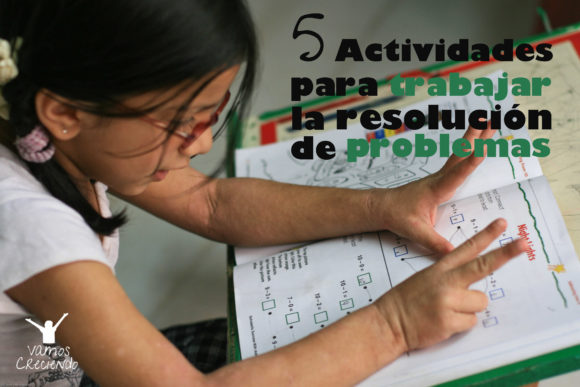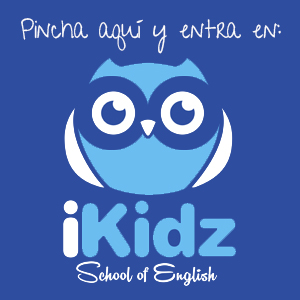
photo credit: Girl Child Education via photopin (license)
Mathematical problems are one of the main difficulties with which the kids are when they enter primary.
The complexity of operations adds that many are still improving reading comprehension. So in many cases even understand the wording find it complicated.
In the post this week I leave 5 activities super simple to do to work problem-solving and mathematical calculations from the 6 years old.
- Sums and sums.
This activity is perfect for addition and subtraction practice with groups 3 the 4 children. Littlun begins operation, for example, 3+2=5, the sum of the following will have to start 5, and so on.
Obviously, numbers will increase as will increase the difficulty, and children will be increasingly concentrated. If you have begun by adding, when you reach high numbers can ask them to subtract.
For the kids in the house you can have a hand chips or anything else you serve to tell, as chickpeas, lentils, etc. So when questions arise you dispondreis of an item to help them in their calculations.
This activity is great for times like when you go in the car. You can play with the whole family and so go to practice.
- We're going shopping!
Explain and teach children the value of money it is crucial. Whether something they are learning at school, or at home, you do activities related to this issue will help a lot, not only know the value of money, but also to perform mathematical calculations related to this.
Give children an amount of euros, 10€, for example, explicadles and that's the amount you can spend on your purchase. Coming up next, Give them a brochure from a supermarket and explicadles they have to see how many foods can buy with that amount. You can ask them to do the sums with pencil and paper or with the calculator. It's a fantastic "sums" way to put them without seeming 😉
- Eggcup "magic"
For this activity you need only an egg and chick peas, or any other element that serves to count.
Write in each of the twelve bowls of huevera the numbers 1 al 12. Ask your child or student to put a pea in each of the 12 Hollow huevera, the closure and shake well. When you open the huevera, You must write or mentally calculate the sum of the numbers that fell chickpeas. After, to see if he has performed the operation correctly, You will have to count objects that you have used or chickpeas.
- How much money do I have?
Many of the problems they face to the kids at school in 1st or 2nd grade are "typical" problems: "If I have 12 cakes and sell 4, How many cakes left me?" A very good way for kids to practice these calculations and, further, learn the value of money, It is to these problems coin.
Give your small 3 cent coins and 4 dimes, and ask him to solve problems like: "I have four coins worth 40 we cents ", "I have three coins worth 12 we cents ", "I have four coins worth 31 we cents ", etc. You can obviously increase the complexity by introducing more coins and more complex operations.
Be you who raise the activity and, even, that is your little problems which raise their siblings or cousins.
- ¡Bingo!
To do this you need a board game bingo with the numbers 1 al 100, and you cards with the same numbers.
Distributed random numbers on the board, make copies and distribute them necessary between participants. The first player draws a card from the pile and puts a record on that number, It is important that the numbers that come out in a separate pile let. The next player draws a card from the pile and so on. The first player who covers a horizontal or vertical line sings online.
If you want to give a little more excitement to the game, you can from a given number, For example, him 4, and every time a child pick a card has to add it or subtract that number. A) Yes, In addition to recognizing the numbers are making simple operations.
I hope these activities will serve to practice so a little more enjoyable problem-solving and performing simple operations with the kids.
Thanks for being there!
"There is no branch of mathematics, abstract it is, someday not be applied to phenomena of the real world. "
Tags: Caculo, mathematics, Mates, Operations, problems, Subtract, some


 Español
Español English
English Français
Français Deutsch
Deutsch 中文(简体)
中文(简体) Português
Português

hi Cristina read whenever an activity , I get excited more and more truth in all categories is extremely valuable information, I was going to ask about the typical games for the first days of the cole for names, me with children, games and dynamic as they are primary and the truth is great leap, Thanks as always marta
Hello, Martha,
Thank you very much for your comment! 😀
I just gave a fantastic idea for the post of next week, What do you think if I make a post with “icebreakers” and activities for the first classes and some games for names?
A hug,
Cristina